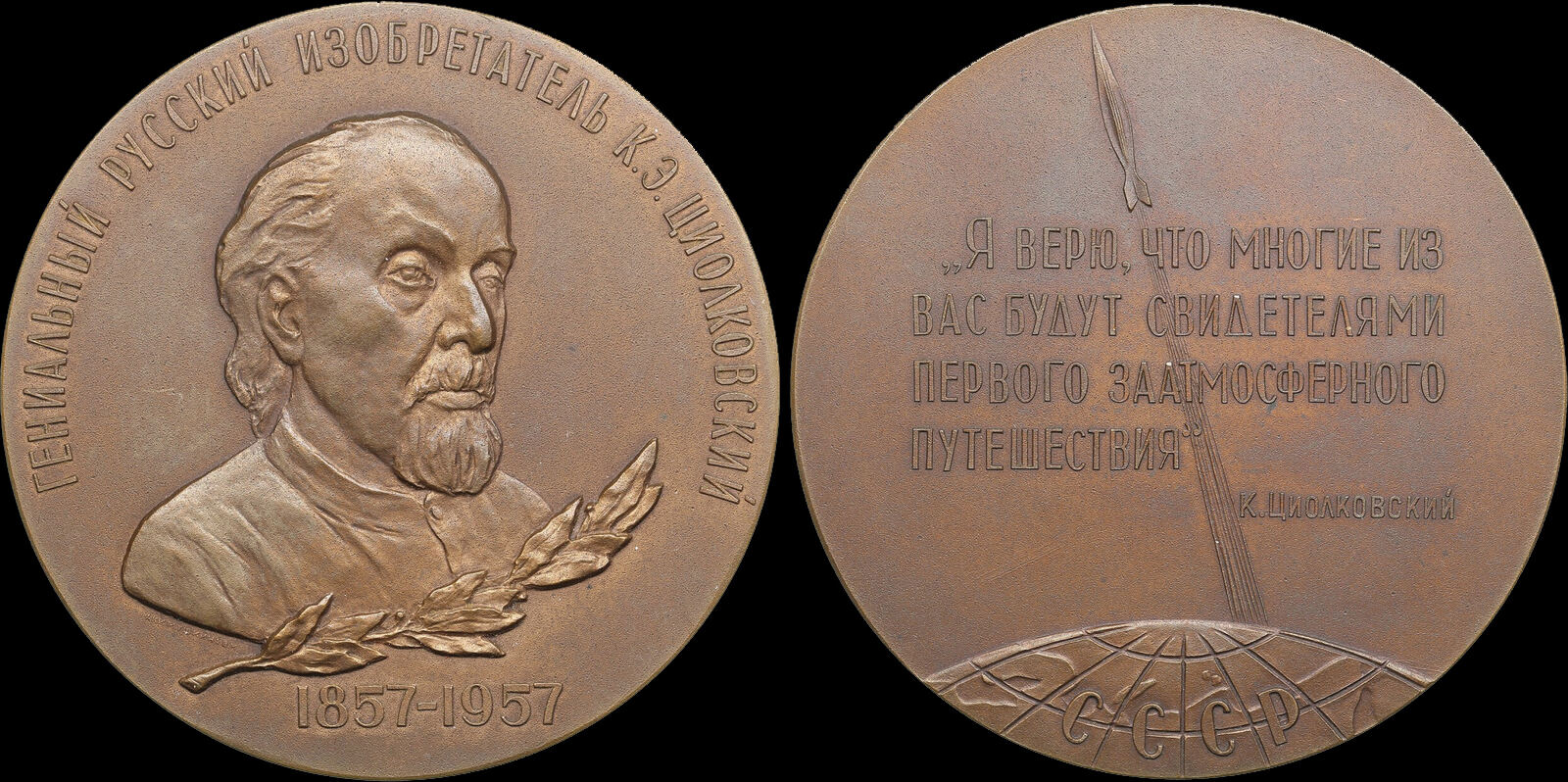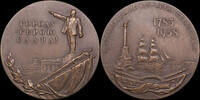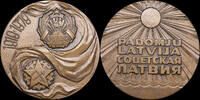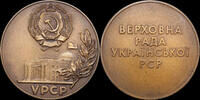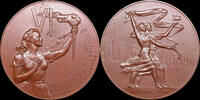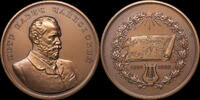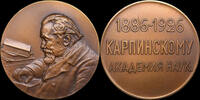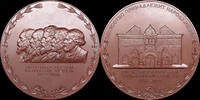MA-号码: 588302090
USSR / Russia 1958 100th anniversary of the birth of K.E. Tsiolkovsky UNC
"100 лет со дня рождения К.Э.Циолковского"
Konstantin Eduardovich Tsiolkovsky: The Father of Rocketry
In the pantheon of pioneers who shaped our understanding and exploration of space, few stand as tall as Konstantin Eduardovich Tsiolkovsky. Born on September 17, 1857, in the small town of Izhevskoye, Russia, Tsiolkovsky's contributions to rocketry and astronautics laid the foundational theories that propelled humanity into the cosmos.
Early Life and Education:
Tsiolkovsky's early life was marked by hardship; he lost his hearing at the age of ten due to scarlet fever. Despite this, his self-education was voracious. He taught himself physics, mathematics, and astronomy, fields in which he would later make monumental contributions. His isolation due to deafness perhaps fueled his introspective genius, leading him to ponder the possibilities of space exploration long before it was considered feasible.
Theoretical Contributions:
Rocket Equation: Tsiolkovsky developed what we now know as the Tsiolkovsky rocket equation, which describes the mathematical relationship between a rocket's velocity, the exhaust velocity of its propellant, and the natural log of the ratio of the rocket's initial mass (including propellant) to its final mass (empty). This equation is crucial for calculating the performance of rockets.
Space Travel Advocacy: He wrote numerous articles and books where he not only theorized about rocket propulsion but also envisioned life in space, including the idea of space stations, space elevators, and even colonies in space. His most famous work, "The Exploration of Cosmic Space by Means of Reaction Devices," published in 1903, outlined many principles that would later become core to space travel.
Aero-hydrodynamics: Tsiolkovsky also made significant contributions to aerodynamics, particularly in the study of air resistance and streamlining, which are essential for rocket design.
Impact and Legacy:
Inspiration: His theories inspired a generation of engineers and scientists in the Soviet Union and beyond. The likes of Sergei Korolev, often called the father of practical astronautics, were directly influenced by Tsiolkovsky's work.
Space Race: Although he did not live to see the launch of Sputnik or the moon landing, his work was pivotal in the Soviet Union's space program, which led the early stages of the Space Race.
Recognition: Tsiolkovsky's contributions have been widely recognized. Craters on the Moon and Mars, an asteroid, and various scientific institutions bear his name, reflecting his enduring legacy.
Konstantin Tsiolkovsky died on September 19, 1935, in Kaluga, where he spent much of his life. Yet, his vision continues to orbit around us. His life story is one of perseverance, where personal limitations were transcended by intellectual curiosity and a profound belief in the human spirit's capacity to explore beyond the known. Today, every rocket that pierces the sky owes a nod to Tsiolkovsky, whose dreams of cosmic exploration have become humanity's reality.
Konstantin Eduardovich Tsiolkovsky: The Father of Rocketry
In the pantheon of pioneers who shaped our understanding and exploration of space, few stand as tall as Konstantin Eduardovich Tsiolkovsky. Born on September 17, 1857, in the small town of Izhevskoye, Russia, Tsiolkovsky's contributions to rocketry and astronautics laid the foundational theories that propelled humanity into the cosmos.
Early Life and Education:
Tsiolkovsky's early life was marked by hardship; he lost his hearing at the age of ten due to scarlet fever. Despite this, his self-education was voracious. He taught himself physics, mathematics, and astronomy, fields in which he would later make monumental contributions. His isolation due to deafness perhaps fueled his introspective genius, leading him to ponder the possibilities of space exploration long before it was considered feasible.
Theoretical Contributions:
Rocket Equation: Tsiolkovsky developed what we now know as the Tsiolkovsky rocket equation, which describes the mathematical relationship between a rocket's velocity, the exhaust velocity of its propellant, and the natural log of the ratio of the rocket's initial mass (including propellant) to its final mass (empty). This equation is crucial for calculating the performance of rockets.
Space Travel Advocacy: He wrote numerous articles and books where he not only theorized about rocket propulsion but also envisioned life in space, including the idea of space stations, space elevators, and even colonies in space. His most famous work, "The Exploration of Cosmic Space by Means of Reaction Devices," published in 1903, outlined many principles that would later become core to space travel.
Aero-hydrodynamics: Tsiolkovsky also made significant contributions to aerodynamics, particularly in the study of air resistance and streamlining, which are essential for rocket design.
Impact and Legacy:
Inspiration: His theories inspired a generation of engineers and scientists in the Soviet Union and beyond. The likes of Sergei Korolev, often called the father of practical astronautics, were directly influenced by Tsiolkovsky's work.
Space Race: Although he did not live to see the launch of Sputnik or the moon landing, his work was pivotal in the Soviet Union's space program, which led the early stages of the Space Race.
Recognition: Tsiolkovsky's contributions have been widely recognized. Craters on the Moon and Mars, an asteroid, and various scientific institutions bear his name, reflecting his enduring legacy.
Konstantin Tsiolkovsky died on September 19, 1935, in Kaluga, where he spent much of his life. Yet, his vision continues to orbit around us. His life story is one of perseverance, where personal limitations were transcended by intellectual curiosity and a profound belief in the human spirit's capacity to explore beyond the known. Today, every rocket that pierces the sky owes a nod to Tsiolkovsky, whose dreams of cosmic exploration have become humanity's reality.
Info / FAQ
| Shipping fees | ||||
|---|---|---|---|---|
| 8.32 元 to 415.83 元 | 415.83 元 to 1,663.33 元 | 1,663.33 元 to 4,158.32 元 | over 4,158.32 元 | |
| China | 99.80 元 | n/a | n/a | n/a |
| Germany | 41.58 元 | 41.58 元 | 41.58 元 | 124.75 元 |
| Estonia | 41.58 元 | 41.58 元 | 41.58 元 | 99.80 元 |
| United Kingdom | 41.58 元 | 41.58 元 | 41.58 元 | 207.92 元 |
| United States | 41.58 元 | 41.58 元 | 41.58 元 | 332.67 元 |
| European Union | 41.58 元 | 41.58 元 | 41.58 元 | 207.92 元 |
| World | 99.80 元 | 124.75 元 | 831.66 元 | 831.66 元 |
Information
Online orders are welcome as always and will be shipped directly.
|
商店主页 | 0购物车 | 使用条件 | 联系 | MA 使用条件 | 隐私声明 | 保证期 | MA-Shops 新商品 Copyright ® 2001-2025, MA-SHOPS Coins All Rights Reserved. Designated trademarks and brands are the property of their respective owners. |
 Buy coins with warranty
Buy coins with warranty


